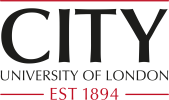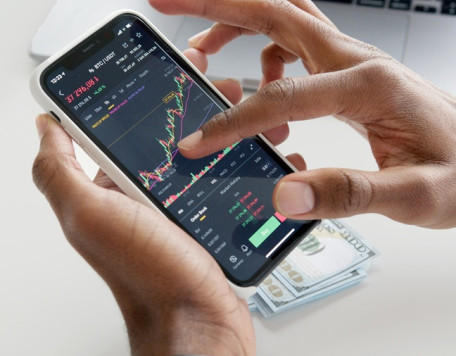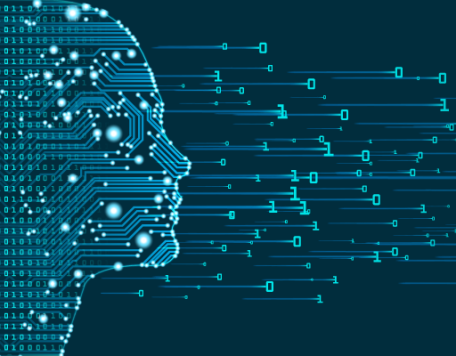© Pint of Science, 2025. All rights reserved.
Nowadays, sensors are used everywhere – from blood pressure monitors to MRI scanners or brain implants. The functional activity of your body can be recorded, imaged and analysed at any level. Anatomy features, histopathology, or functional activity of cells... The possibilities are endless, and this information is crucial in diagnosis and treatment. You have a chance to meet biomedical engineering researchers from City and learn how novel sensor technologies are being developed and incorporated into clinical practice. The function room is on the first floor, with no wheelchair access.
Electroceuticals: electrical bio-interfacing & microelectronics
Dr Iasonas Triantis
(Senior Lecturer in Microelectronics and Biomedical Engineering)
This talk will provide some of the background and motivation behind the development of implantable neuroprosthetics. More specifically the talk will be about devices and methods used to carry out electrical stimulation of nerves and neural recordings for therapeutic applications in medical conditions ranging from spinal cord injury to epilepsy. Furthermore the talk will expand on methods utilising electrodes to interface with biology beyond neuroprosthetics and towards diagnostics and disease monitoring.
Immuno-histo-what????? The crossroads of medicine, biochemistry, physics and computer programming
Dr Carlos Reyes Aldasoro
(Senior Lecturer in Biomedical Image Analysis)
Among the many important developments in the history of science related to human health, the study of the microscopic structure of cells and tissues, also known as histology, has earned a special place due to its versatility, the capacity to study many diseases and has become an essential tool for doctors and biologists. Recent advances in microscopy and computing have, without intention, created much better, but very very large and complex histological images! This talk will introduce some concepts of histology and the way that computers are used to assist the work of doctors and biologist.
Sensors in bipolar mood disorder diagnosis
Dr Loukas Constantinou
(Research Associate, Research Centre for Biomedical Engineering)
Bipolar disorder is a serious life-long condition characterised by recurrent episodes of depressed and manic mood states. About 2% of the UK population is diagnosed with bipolar disorder. Lithium is the most widely used medication for treating bipolar disorder. It is highly effective at controlling mood swings, preventing further episodes and reducing suicidal risk. Our project focuses on development of a personal healthcare sensor system for monitoring of blood lithium concentration. It will employ smart optical and electrical sensors that will monitor changes in blood lithium levels.
Immune system: tracking cell migration
José Alonso Solís-Lemus
(PhD Researcher in Biomedical Engineering)
Inflammation and infection are processes that involve the immune system, in which migration of immune cells has a role worth studying. However, observing these cells in humans is complicated. Scientists have recently developed the use of "model" organisms to obtain videos of cells migrating. The human vision is sophisticated enough to understand and analyse these videos, however, the process is demanding and our capabilities are limited. This talk will introduce the computational methods for automatic analysis of cells in motion.
A dark passage: shining light on colorectal cancer
Zaibaa Patel
( PhD Researcher in Biomedical Engineering)
Colorectal cancer is the second most common cause of cancer death in the UK. The only curative treatment is surgery, where the cancerous tumour is removed and healthy ends are joined. 2-10% of patients have unsuccessful surgeries, as there are no reliable techniques monitoring the health of the intestine for prolonged period of time. We can take advantage of light interactions with tissue to gain information about its health. In this talk, I will introduce the novel light sensor technology for monitoring of changes in blood volume and oxygen levels within the colorectal passage.
Light: a tool for biomedical sensing
Subhasri Chatterjee
(PhD Researcher in Biomedical Engineering)
In biomedicine, optical diagnosis and photonics-based imaging techniques strongly influence many application areas. As the basic principle of all medical applications, light is made incident on the region of interest of human body, and the reflected back light is detected, which can reveal a range of information about the tissue morphology. Depending on the application, different sensors employ different geometry between light source and detector. In this talk, I will show how the interaction of light with tissue can be utilized for different biomedical sensing applications.
Map data © OpenStreetMap contributors.
Other The Artillery Arms events
2025-05-21
Finance in Focus: Private Equity in Childcare and the Power of Simple Stock Forecasting Models
The Artillery Arms
102 Bunhill Row, London, EC1Y 8ND, United Kingdom
2025-05-20
Beyond the Buzzwords: AI’s Reality Check
The Artillery Arms
102 Bunhill Row, London, EC1Y 8ND, United Kingdom




